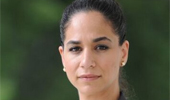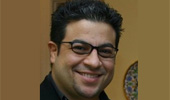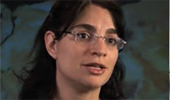The 2016 Baker Peace Conference features a panel on Making Sense of Today’s Middle East on Friday, March 25, at 3 p.m. in Baker Ballroom A,
The theme of the 2016 conference, held March 24 and 25 at Ohio University, is “History, War, and the Shaping of the Modern Middle East.” The conference focuses on the Middle East, from World War I to the present time. These events are free and open to the public. See the 2016 conference schedule. Three panels will convene on Friday, featuring a diverse array of topics and specialists. Each panel will have a time for questions and answers.
Panel 3: Making Sense of Today’s Middle East
3 p.m.
From Occupation to Warfare: The New Phase of Israeli-Palestinian Relations
Professor Noura Erakat, Esq., George Mason University
She is a human rights attorney, activist, and an assistant professor at George Mason University’s School of Integrative Studies, where she directs the legal studies concentration. Her scholarship investigates the laws of war, human rights, refugee law, and national security. She is a co-editor of Jadaliyya E-zine. Erakat has taught “International Human Rights Law and the Middle East” as a visiting professor at Georgetown University since Spring 2009 and was a Freedman Teaching Fellow at Temple University, Beasley School of Law. She has served as Legal Counsel for a Congressional Subcommittee in the House of Representatives. Her scholarly articles include “New Imminence in the Time of Obama: The Impact of Targeted Killing on the Law of Self-Defense” in the Arizona Law Review and “Palestinian Refugees and the Syrian Uprising: Filling the Protection Gap During Secondary Forced Displacement” in the Oxford Journal of International Refugee Law.
The Syrian Uprising: From Civil Protest to Russian Intervention
Dr. Bassam Haddad, George Mason University
He is Director of the Middle East Studies Program and an associate professor at the School of Policy, Government, and International Affairs (SPGIA) at George Mason University. He is the author of Business Networks in Syria: The Political Economy of Authoritarian Resilience (Stanford University Press, 2011) and co-editor of Dawn of the Arab Uprisings: End of an Old Order? (Pluto Press, 2012). Haddad serves as Founding Editor of the Arab Studies Journal, a peer-reviewed research publication, and is Co-producer/Director of the award-winning documentary film, About Baghdad, and Director of a critically acclaimed film series on Arabs and Terrorism, based on extensive field research and interviews. He is Co-Founder/Editor of Jadaliyya E-zine and the Executive Director of the Arab Studies Institute, an umbrella for five organizations dealing with knowledge production on the Middle East. Haddad serves on the Board of the Arab Council for the Social Sciences and is Executive Producer of Status Audio Journal.
Understanding the Rise (and Possible Fall) of Iran and Turkey as Regional Hegemons
Dr. Asli Bali, University of California at Los Angeles
He is Director of the UCLA Center for Near Eastern Studies and a professor of law at the UCLA School of Law where she teaches in the International and Comparative Law Program. Recent work includes “Turkish Constitutionalism Under the AKP” (Theory & Event, 2016); “Constitutional Design Without Constitutional Moments: Lessons from Religiously Divided Societies” (forthcoming, Cornell International Law Journal); “The Wrong Kind of Intervention in Syria,” in The United Nations and the Arabs (eds. Vijay Prashad and Karim Makdisi) (Oxford, forthcoming 2016); and “Negotiating Non-Proliferation: International Law and Delegation in the Iranian Nuclear Crisis,” (UCLA Law Review, 2014). She currently serves as a Turkey page editor for the E-zine Jadaliyya and as chair of the Advisory Committee for Human Rights Watch-Middle East.






















Comments